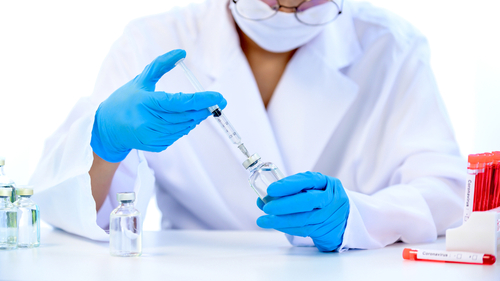
Researchers from the National Institute of Allergy and Infectious Diseases (NIAID) will lead a phase 2 clinical trial — ACTIV-2 — of experimental therapeutics, to see how an antibody-based treatment and others may fare against those with mild to moderate cases of COVID-19.
Mild to moderate, in this case, means volunteers who have the disease but do not yet require hospitalization. The primary focus of the study is a therapeutic based on synthetic monoclonal antibodies (mAbs): LY-CoV555, made by Eli Lilly and Company, and AbCellera Biologics. Volunteers will be given either this or a placebo, but other therapeutics may be brought in later. The goal of the study is to see if such antibodies could reduce the severity of COVID-19 cases.
“Using an antibody generated by the immune system of a recovered COVID-19 patient gives us a jump start on finding a safe and effective therapeutic,” NIAID Director Anthony Fauci said. “Investigating a variety of different therapeutics, including monoclonal antibodies, will help ensure that we advance towards an effective treatment for people suffering from COVID-19 disease as quickly as possible.”
If the treatment results prove favorable, the study will move to a phase 3 trial built on a larger pool of volunteers. A part of the National Institutes of Health’s Accelerating COVID-19 Therapeutic Interventions and Vaccines program and supported by the multi-agency Operation Warp Speed, the trial will enroll volunteers from around the world.
“Prioritized therapeutics under ACTIV will use a master protocol that emphasizes flexibility, which enables these critical trials to be conducted without incurring delays when a treatment shows promise,” NIH Director Francis Collins said.
The initial trial will enroll approximately 220 volunteers who recently reported COVID-19 symptoms and tested positive. Half will be given an intravenous infusion of LY-CoV555; half will receive a placebo infusion. Patients will then be studied over the next 28 days and received additional follow-ups for up to 24 weeks after.
If the trial ramps up to a phase 3 study, it could enroll an additional 1,780 outpatient volunteers. At that point, researchers would be focused on seeing if the therapeutic could prevent hospitalization or death within a month of study. All facets of the trial will be overseen by an independent data and safety monitoring board.




